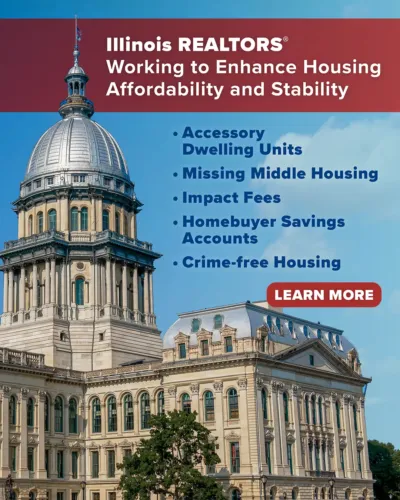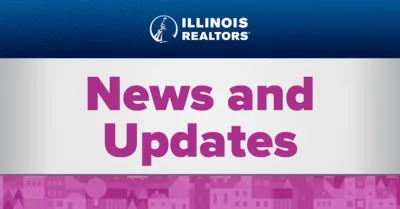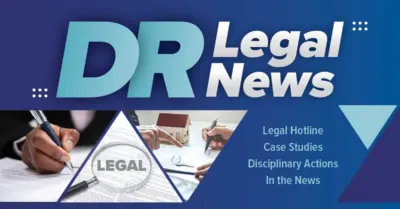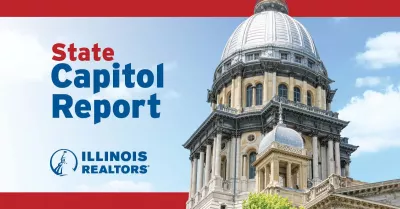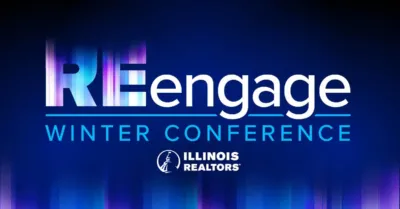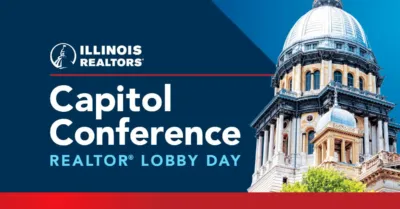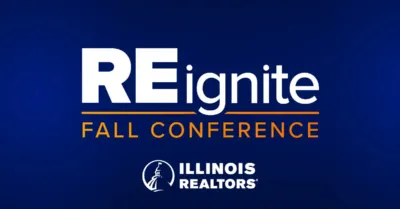The Requirements of RESPA & Relationships between Settlement Service Providers (Revisited)
While it is clear that real estate licensees are governed by the Illinois Real Estate License Act (RELA), the rules under RELA, and the REALTOR® Code of Ethics (for members), it is important to remember that many other laws and regulatory schemes affect the real estate brokerage practice. The federal Real Estate Settlement Procedures Act (RESPA) rules is one such area of concern.
As a review and reminder, this article examines some of the common RESPA-related situations that arise daily in the practice of real estate.
Referral fees & kickbacks are prohibited among settlement service providers (SSPs)
Generally speaking, the federal RESPA regulations prohibit an SSP from giving or offering anything of value to another SSP in exchange for a mere referral of business. (Note one exception to the general rule allows referral fees to be paid between real estate brokerages). RELA contains provisions allowing a real estate licensee to refer business to another business, a banker for example, as long as any fee is disclosed to the consumer or client. However, such a referral is clearly prohibited under RESPA because the arrangement is between SSPs. In other words, RESPA is stricter by not permitting referral fees among SSPS. As a result, even if permitted with disclosure under the state licensing statute, it is verboten under federal law. The real estate licensee must abide by the stricter requirements.
What is a settlement service provider (SSP)?
An SSP is almost anyone or entity that is reflected on a closing statement or closing disclosure document reflecting all costs and money transfers involved in a residential real estate sales transaction. Residential real estate for RESPA purposes covers real estate containing from one to four residential dwelling units. A few examples of SSPs:
- Real estate brokers
- Lenders
- Mortgage brokers
- Title companies and title agents
- Attorneys
- Home warranty companies
With a few exceptions, it is a violation of RESPA for any of the afore-mentioned SSPs to give something of value to one SSP in exchange for a referral to another SSP, even if another law would allow this. This prohibition covers “naked” referral fees; or those for which nothing other than a referral of business is given.
It is permissible for SSPs to refer each other at no cost, or where no compensation is exchanged for the referral. Remember that compensation is anything of value and not just money, like sporting event tickets or televisions. If Susie Broker regularly refers business to Billy Banker because Susie believes Billy provides exceptional service, this is acceptable so long as Billy does not give Susie (or her company) any compensation in exchange for the recommendation. However, it is a prudent practice for SSPs to avoid exclusive or preferred relationships amongst each other. If it appears that Susie only refers Billy and no other bankers, the appearance of quid pro quo can be enough to become problematic under RESPA.
Some permissible scenarios
There are some ways to maintain business relationships between SSPs without violating RESPA. What if Susie Broker wanted to do some joint advertising with Billy Broker in an on-line publication? Is there any way to do this without violating RESPA? The answer is a qualified yes, and for simplicity, it is assumed that the content is true and not misleading in any way in order to remain compliant under RELA and any banking laws that apply. Susie and Billy (or their respective companies) must each pay their incremental costs of the advertising. If the ad space is 50/50 between Susie and Billy, each must pay 50 percent of the bill. If Billy pays for the entire ad, then Susie is getting something of value (free marketing) ostensibly in exchange for referrals to Billy’s bank.
One other example to consider is where Billy places a desk in a small office in Susie’s real estate building. Could Susie and her company allow Billy to do this free of charge? No. However, if Billy pays fair rental value for the space, there is a way to do this without running afoul of RESPA. It is also important to note that under RELA, no business is allowed to have a physical presence within a real estate brokerage office unless it is in a separate area. This is another reminder about the application of other laws to the practice. The purpose of the RELA provision is so that the consumer is aware that there are two distinct companies located in the building that are not the same business. (See RELA Section 5-45(d)).
Another common practice involves home warranty policies. Susie Broker wants to sell a home warranty company’s (HWC) contract to a buyer client. Would Susie be allowed to receive compensation from the HWC for merely referring the buyer to the HWC? No. However, if Susie became an HWC agent and performed unique services that are different than real estate brokerage services in exchange for payment that is commensurate with the value of the unique (non-real estate brokerage) services, she could do this work for the HWC and comply with RESPA requirements. Remember that Susie will have legal and ethical duties to disclose her capacity as an agent for the HWC. Also, keep in mind these concepts could apply to other SSPs as well. Read a related article: Can you be a real estate broker AND a title agent?
(Disclaimer: Illinois REALTORS® makes no recommendations on the advisability of any of the illustrated practices. Members are strongly advised to seek competent legal counsel in these situations).
Affiliated Business Arrangements
Switching gears, another area of concern under RESPA involves businesses that are SSPs where there is common ownership or some other nexus or relationship. For example, some real estate brokerage companies have common ownership on title insurance companies or mortgage brokerages. This puts the SSPs in a position to refer consumers to the related or affiliated business. Do these facts alone violate RESPA? Not necessarily. However, to do this legally the affiliates must be organized properly, the affiliation must be fully disclosed to consumers and there must be no compensation paid for the referral of business to the affiliated company.
Susie Broker refers business to Thomas Title Company. While Susie is not the 100% owner of the title company, she does own some shares of Thomas Title. If Susie refers to Thomas Title, she must provide separate written disclosure to the consumer containing the following information:
- Explanation of the nature of the affiliation
- How they are affiliated
- Itemization of costs of services or a range of costs
- Bold or capitalized statement that the consumer is free to shop for services
- Consumer’s signature
The SSP cannot require the use of the affiliated business, but it can offer the consumer a discounted rate or a better deal if the consumer uses the affiliate. Find a sample disclosure form.
In order to avoid RESPA issues, affiliated businesses should be sure that the companies are separate, stand-alone entities that are separately capitalized, have distinctly different sets of employees, have their own facilities and each should provide distinct services. Again, if a real estate brokerage wishes to affiliate or needs to review its relationship with current affiliated businesses, it is best to seek the advice of an attorney who is well-versed on RESPA issues and requirements.
The information here scratches the surface of RESPA considerations when it comes to SSPs and the permissible relationships between them. For more on RESPA issues visit:
- Illinois REALTORS® RESPA web page (member login required)
- National Association of REALTORS® RESPA page
About the writer: Elizabeth A. (Betsy) Urbance, General Counsel and Vice President of Legal Services has served the association’s members as General Counsel since 2018 and prior to that she was Legal Hotline Attorney since 1994. Urbance is a 1984 graduate of Western Illinois University and received her law degree from the University of Missouri School of Law in 1987. She is licensed in both Illinois and Missouri.



